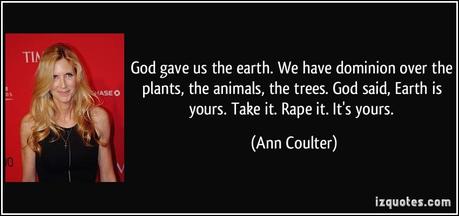While not watching the Super Bowl last night, I watched White Light/Black Rain: The Destruction of Hiroshima and Nagasaki. It is a powerful documentary that really brings home the tragedy of these events, told mostly through the eyes of Japanese survivors. All were children who suffered through unspeakable horrors, yet as adults they are able (or perhaps compelled) to speak about them. As I listened to their stories, I was riveted by their collective dignity, grace, and character. The pathos was finely balanced with composure. But above all I was moved by their humanity, by the fact they are people.
This sense of humanity, the recognition that we are all alike and indeed related, was of course a primary target for government propagandists. The American government, for its part, combated this sense by characterizing the Japanese as “primitives.” While I’ve long known that American propaganda variously dehumanized Japanese as animals and automatons, I was surprised by the extent to which American propaganda relied on progressive discourse and its corresponding binary: primitive/civilized.
Watch the first few minutes of this well-known and widely-watched film featuring Secretary of War Stimson:
Let’s consider Stimson’s opening statement more closely:
To beat the Japanese and do the job thoroughly, we have got to understand them thoroughly. The Japanese are not easy to know. I have lived among them for ten years and I can testify that they are as different from ourselves as any people on this planet. The real difference is in their minds. You cannot measure Japanese sense of logic by any western yardstick. Their weapons are modern, their thinking 2,000 years out of date.
“Two thousand years” was of course carefully chosen. Stimson is appealing to Christians who believe that Jesus marked an epochal point in history, the pivot from which all progress toward modernity begins.
To emphasize this point, Stimson next explains — as if it were patently absurd — that the Japanese believe Emperor Hirohito is a god, the living embodiment and descendant of Amaterasu. Because this Japanese goddess first appears in the historical record around 700 AD, it is not entirely clear why Stimson characterizes these ideas as “primitive.” The concept is more recent or “modern” than the one surrounding a human god that lived and died 2,000 years ago.
Logical inconsistencies aside, it is ironic that Americans would rely so heavily on this kind of progressive discourse. The rapidly modernizing Meiji Japanese were obsessed with progress and the primitive/civilized binary. In one of those weird concatenations that make life so interesting, just this morning I read a book review that nicely captures these ideas:
The central trope of Miller’s history of the Tokyo zoo is “ecological modernity”, a concept developed by Arthur P. J. Mol and David A. Sonnenfeld, to capture the unstable binaries of animal–human, primitive–civilized and nature–culture that undergird modernity. Everywhere modernity saw itself as rising above nature, but nowhere was nature overcome. Ecological modernity was not a Western invention. It emerged in Japan before America’s black ships loomed in Uraga Harbor in 1853. Under the shogun, practitioners of natural history (honzōgaku) distanced nature as an object of specialized study while making its exploitation central to new regimes of political economy.
In 1822, the samurai chemist Udagawa Yōan’s Botany Sutra proposed a clear distinction between “animals” and “humans” as part of a new biological taxonomy. After America’s gunboats had forcibly opened Japan and precipitated an end to the Tokugawa shogunate, the new Meiji leaders rightly feared loss of economic and political autonomy. They struggled against the unequal trade treaties and extraterritoriality imposed by Western powers for more than three decades. As part of this struggle, they positioned the zoo (and other institutions) between themselves and the predatory West. The zoo opened in the Ueno district of Tokyo in 1882, “the first modern zoo in East Asia”, Miller notes, “and the first zoo in the world not built under the sway of a Western imperial regime.”
In choosing to collect animals, Japanese leaders resisted racial hierarchies that positioned Asians close to apes, but the zoo’s function, like ecological modernity itself, was never stable. As Japan extended its own colonial reach, the zoo moved from celebrating Japanese parity with the Westerners to celebrating Japanese empire.
The book in question is Ian Jared Miller’s The Nature of the Beasts: Empire and Exhibition at the Tokyo Imperial Zoo. Though I think a good argument can be made that ecological modernity — the objectification, subjugation, and exploitation of “nature” — is a primitive idea emanating from mythical Eden, this looks like a great book. Thanks to Julia Adeney Thomas for the fantastic review.


